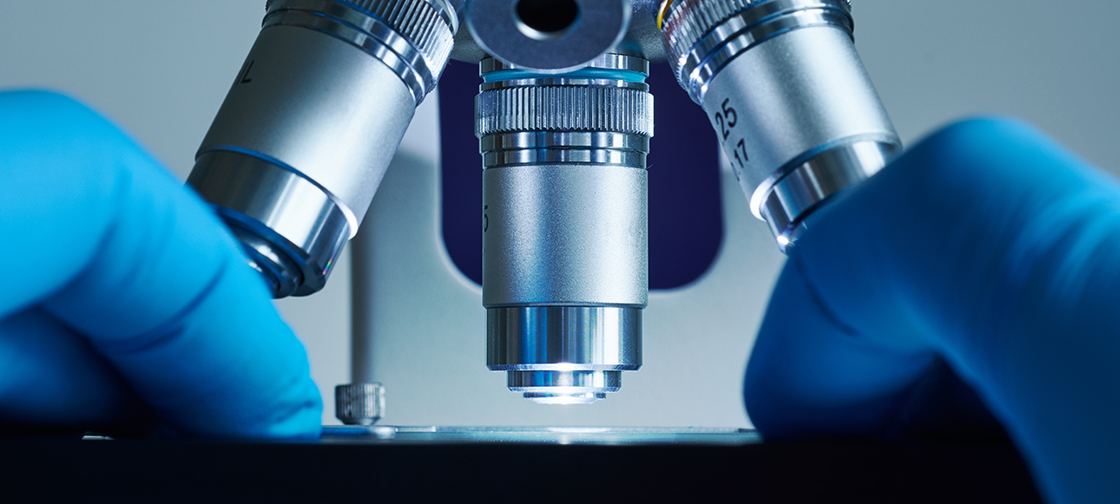EPFL scientists have developed a new type of microscope slide that can boost the amount of light in fluorescence microscopy by a factor of up to 25. These new slides can both amplify and direct light, making them ideal for applications ranging from early-stage diagnosis to the rapid archiving of pathology samples.
For scientists, the glass slides used to prepare samples for looking at under a microscope are part and parcel of their work – and they haven’t changed much in nearly 200 years.
At the Institute of Microengineering in Neuchâtel, part of EPFL’s School of Engineering, researchers have developed a novel type of glass slide that stands to break with tradition. Their slides have a coating that “structures” light, allowing for up to 25 times more light to be emitted and thereby enhancing the sensitivity of the microscopes they are used with.
Nicolas Descharmes and Raphaël Barbey developed their slides specifically for fluorescence microscopy, which is widely used to diagnose cancer and autoimmune diseases, identify allergies or sequence DNA. Their design has unique optical properties and it allows the detection of minute amount of light. This could be especially useful for making early-stage diagnosis, quickly identifying specific types of cancer and rapidly archiving pathology samples. “In an ideal case, our slides could be used to detect the presence of one molecule, where 25 molecules would be needed on conventional slides” says Descharmes.
Source: “Glass slides that stand to revolutionise fluorescence microscopy”, Laure-Anne Pessina, EPFL News




